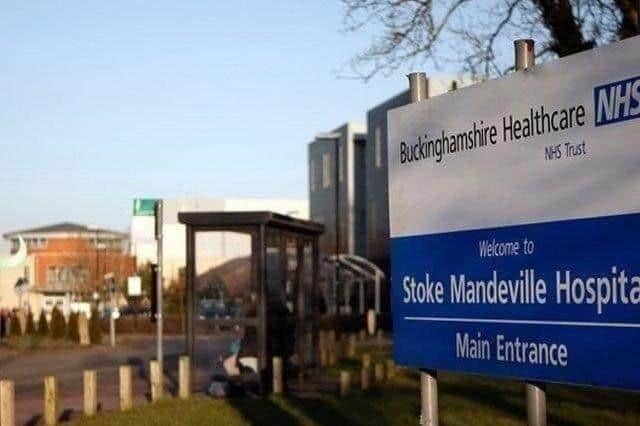Buckinghamshire NHS services to be severely impacted as junior doctors and consultants prepare to join strike action
and live on Freeview channel 276
Health services across Buckinghamshire will be significantly impacted as junior doctors and consultants join NHS strike action this week.
For the first time since the latest set of NHS strikes started last year, junior doctors and consultants will be taking industrial action on the same day, affecting both planned and routine services.
Advertisement
Hide AdAdvertisement
Hide AdBMA consultants are taking part in a two-day strike from tomorrow (Tuesday). Meanwhile, junior doctors are taking part in a three-day strike from 7am on Wednesday to Saturday (September 23).


The NHS says it is working to prioritise resources to protect emergency treatment, critical care, neonatal care, maternity, and trauma, and ensure priority for patients who have waited the longest for elective care and cancer surgery.
Dr Nick Broughton, from the NHS Buckinghamshire, Oxfordshire and Berkshire West Integrated Care Board (IBC), said NHS staff would be ‘working very hard during a very challenging time’ and is reminding patients to treat them with respect.
He added: “We appreciate people's understanding and co-operation during this time.
Advertisement
Hide AdAdvertisement
Hide Ad"Emergencies, critical care, maternity, trauma and neonatal care safe staffing will be our absolute priority, but it will involve the NHS working together across Buckinghamshire, Oxfordshire and Berkshire West to ensure we are there for people at their moment of need. We are grateful to all our colleagues working during this time to keep services running and patients safe.”
Dr Rachael de Caux, Chief Medical Officer of the NHS Buckinghamshire, Oxfordshire and Berkshire West IBC, said: “It’s important that patients who need urgent medical care continue to come forward as normal, especially in emergency and life-threatening cases - when someone is seriously ill or injured, or their life is at risk.”
This could include chest pain, severe bleeding or breathing difficulties.
Otherwise, she is reminding people to think carefully about choosing the most appropriate NHS Service for their needs and to only use 999 and A&E for serious or life threatening emergencies.
Advertisement
Hide AdAdvertisement
Hide AdPatients who have a scheduled appointment should attend as planned unless they hear directly from the NHS otherwise.
In the meantime, people can call 111 or contact the service online for advice and to ensure prescriptions are up to date.